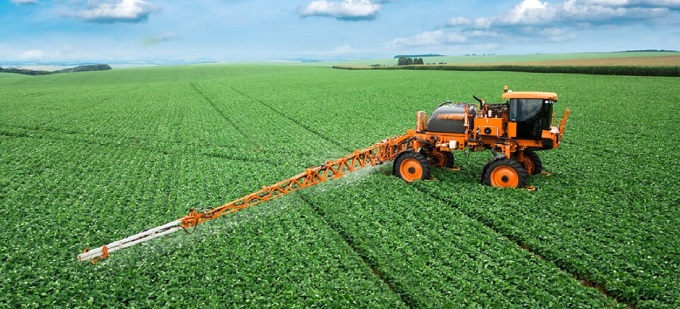As the world grapples with food security challenges, Africa stands at a pivotal moment in its agricultural journey.
With abundant natural resources, diverse climates, and a growing population, the continent has the potential to emerge as a significant food exporter.
By looking to Brazil—a country that successfully transformed its agricultural sector—Africa can glean valuable insights on how to optimize its farming practices, improve infrastructure, and enhance its role in the global food market.
This article explores key lessons from Brazil and how they can be adapted to foster agricultural growth in Africa.
The Brazilian Agricultural Revolution
Brazil’s agricultural transformation began in the mid-20th century, driven by government policies, technological advancements, and investments in research and development.
The country transitioned from being a food importer to one of the world’s largest agricultural exporters, notably in soybeans, beef, and chicken. This transformation was not merely a matter of scaling up production; it involved a comprehensive approach that integrated innovation, education, and strategic planning.
Investment in research and development has been a cornerstone of Brazil’s agricultural success. The establishment of institutions like Embrapa (Brazilian Agricultural Research Corporation) focused on innovative agricultural research, leading to the development of high-yield and resilient crop varieties.
Coupled with this was a significant investment in transportation and storage infrastructure, enabling efficient logistics from farms to markets. Improved roads, railways, and port facilities reduced post-harvest losses and increased competitiveness.
Moreover, Brazilian agriculture increasingly adopted sustainable practices, balancing productivity with environmental stewardship, which enhanced the global marketability of its products.
Education and training played a crucial role in this transformation. Brazil prioritized farmer education through extension services that provided essential information on modern farming techniques, market trends, and sustainability practices.
Applying Brazil’s Lessons to Africa
For Africa to enhance its agricultural productivity, it must invest in local research institutions akin to Embrapa.
Establishing dedicated agricultural research centers focused on regional crops and climatic conditions will lead to innovations tailored to local needs. Collaborations with universities and international agricultural organizations can facilitate knowledge transfer and technology sharing.
Investing in infrastructure is equally crucial for reducing food wastage and enhancing market access. Africa needs to prioritize the development of transportation networks, upgrading roads, railways, and ports to facilitate the smooth movement of agricultural products.
This will help farmers reach markets quickly and efficiently. Building cold storage and warehousing solutions is essential to minimize post-harvest losses, ensuring that food remains safe and fresh until it reaches consumers.
Sustainability is a key driver in today’s global food market. African countries should adopt sustainable agricultural practices that enhance productivity while preserving environmental resources.
Implementing ecological farming practices that promote biodiversity and soil health, along with investing in irrigation technologies and rainwater harvesting, will optimize water use in agriculture.
Education is fundamental to empowering farmers. Expanding agricultural extension services can provide farmers with valuable information on modern techniques, market access, and sustainable practices.
Additionally, leveraging mobile technology can help disseminate information rapidly and efficiently, enabling farmers to make informed decisions.
Strengthening regional trade agreements can further bolster Africa’s agricultural capabilities. The African Continental Free Trade Area (AfCFTA) can help reduce trade barriers and create a more integrated market for agricultural products. This will allow countries to share resources, expertise, and technology, ultimately boosting agricultural output.
Overcoming Challenges
Insecure land tenure remains a significant barrier to agricultural investment in many African countries. Governments must implement clear land policies that guarantee land rights for farmers, encouraging them to invest in their land and adopt long-term agricultural practices. Climate change poses a considerable threat to agriculture in Africa, making the development of adaptive strategies essential.
This includes promoting drought-resistant crops and climate-smart farming techniques. Governments and NGOs can play a vital role in providing resources and support to help farmers adapt to changing climatic conditions.
Political stability is crucial for agricultural investment and development. Countries must prioritize governance reforms that promote transparency, reduce corruption, and create a conducive environment for agricultural growth.
Conclusion
As Africa looks to transform its agricultural landscape, the lessons learned from Brazil’s agricultural revolution offer a roadmap for success.
By investing in research and development, improving infrastructure, promoting sustainable practices, enhancing farmer education, and strengthening regional trade, Africa can position itself as a leading food exporter. The continent has the potential to not only achieve food security but also contribute significantly to global food supply chains, benefiting both its economies and its people.
By fostering collaboration between governments, private sectors, and international organizations, Africa can embark on this transformative journey, ensuring a sustainable and prosperous agricultural future.
Also Read
How the Uber of tractors is revolutionising farming
How AI is revolutionising livestock management
